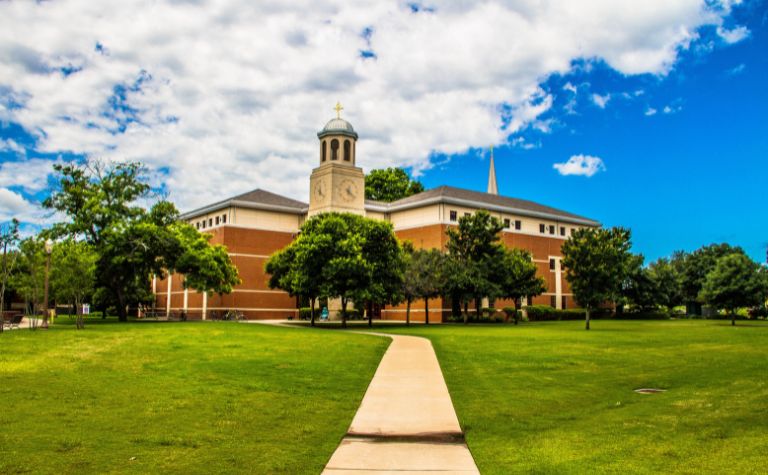The Master of Divinity (M. Div.) stands as a pivotal degree in theological education.
Historically, it has provided the groundwork for individuals seeking to serve in various ministry roles, from pastoral care to chaplaincy.
The M. Div. program equips students with an in-depth understanding of theological disciplines, pastoral responsibilities, and the complexities of spiritual leadership.
As the landscape of theology and ministry has evolved over time, so has the structure and content of the M. Div. program.
In today’s context, it remains a fundamental course of study for those aspiring to roles in ministry and theological education.
This article offers insights into the nature, history, and relevance of the M. Div., shedding light on its significance in contemporary times.

Historical Context and Evolution of the M. Div.
The Master of Divinity, often abbreviated as M. Div., has roots that trace back to the early periods of formal theological education.
Originating in medieval European universities, theological training was initially integrated into broader academic curricula.
With the emergence and expansion of universities in the Renaissance period, specialized programs dedicated to theological studies began to take shape.
The M. Div. as we understand it today, however, gained prominence in the 19th and 20th centuries, particularly in North America.
As theological institutions aimed to provide a more comprehensive education for clergy and ministry leaders, the M. Div. evolved to encompass a broader range of subjects.
This included not only traditional scriptural studies but also pastoral care, ethics, and practical ministry skills.
Over time, as societal and cultural dynamics shifted, the M. Div. program adapted to address new challenges and needs.
Technological advancements, changing societal values, and increased intercultural interactions influenced the content and methods of instruction.
Today, while the M. Div. retains its foundational focus on theology and pastoral training, it also reflects a commitment to understanding and engaging with the modern world, ensuring that ministry leaders are well-prepared for the multifaceted challenges they might encounter.

Core Components and Curriculum
The Master of Divinity curriculum is structured to provide students with a comprehensive understanding of theology, while also equipping them with practical skills essential for leadership roles in various ministry contexts.
At the heart of the M. Div. program are courses in systematic theology, which explore fundamental theological doctrines and concepts.
These foundational courses offer insights into the nature of God, humanity, and the relationship between them.
In addition to systematic theology, students often study historical theology to gain an understanding of the development of theological thought over time.
This helps contextualize contemporary theological discussions within a broader historical framework.
Another vital area of study is pastoral care and counseling, where students are trained to support individuals and communities through life’s challenges, from personal crises to broader societal issues.
Courses in this field focus on the practical application of theological insights in real-world scenarios.
Moreover, the curriculum frequently includes classes on ethics, guiding students in understanding moral decision-making from a theological perspective.
Practical ministry skills, such as preaching, liturgy, and leadership, are also central to most M. Div. programs.
Overall, the M. Div. curriculum aims to produce well-rounded ministry leaders, proficient in both the theoretical and practical aspects of their vocation.

Career Paths and Opportunities
The Master of Divinity degree equips graduates with the knowledge and skills needed for a variety of leadership roles within the realm of theology and ministry.
Many M. Div. graduates pursue pastoral roles, serving as pastors, ministers, or chaplains in various denominations and settings.
These roles involve leading congregations, providing spiritual guidance, and performing rites and ceremonies.
Beyond traditional pastoral roles, the degree also opens doors to positions in educational settings.
Some graduates become theological educators, teaching theology or related subjects in colleges, seminaries, or universities.
Others might opt for roles in spiritual care within hospitals, prisons, and the military, addressing the unique spiritual needs of individuals in these environments.
Additionally, with a strong foundation in theology, ethics, and pastoral care, many M. Div. graduates find opportunities in nonprofit organizations, guiding the mission and vision of organizations dedicated to social justice, community outreach, or humanitarian causes.
In essence, the M. Div. offers flexibility in career choices, allowing graduates to apply their theological training in various contexts and capacities, be it within traditional ministry settings or broader societal roles.
Comparing M. Div. with Other Theological Degrees
The Master of Divinity (M. Div.) is one of several theological degrees available to those interested in advanced study of theology and ministry.
Its comprehensive curriculum is designed to provide a broad foundation in theological education, making it suitable for those aiming for leadership roles within ministry.
On the other hand, a Master of Arts in Theological Studies (MATS) tends to be more academic in nature, often focusing on a specific area of theology.
This degree might appeal to those considering a career in theological research or academia.
The Doctor of Ministry (D. Min.) is another advanced degree, intended for professionals already serving in ministry who wish to enhance their pastoral skills and knowledge.
Unlike the M. Div., which is often pursued by those at the outset of their ministerial careers, the D. Min. is more practitioner-oriented.
Lastly, the Ph.D. in Theology is a research-intensive degree, typically pursued by those aiming for academic positions, such as professors in seminaries or universities.
In summary, while the M. Div. offers a comprehensive theological education for ministerial leadership, other degrees provide specialized academic or practical training tailored to specific career goals within theology.
Challenges and Criticisms
The Master of Divinity (M. Div.) has long stood as a cornerstone for theological education, especially for those aiming for pastoral roles.
However, like many academic programs, it has faced its share of challenges and criticisms.
One of the primary critiques is the length and intensity of the program.
With many M. Div. programs requiring three or more years of full-time study, the commitment in terms of time and finances can be substantial.
Some critics also question the practicality of the curriculum, arguing that certain courses may not be directly applicable to modern ministry contexts.
The rapid changes in societal norms and values, advancements in technology, and shifts in congregational expectations can make certain traditional teachings seem out of touch.
Additionally, as with many degrees, there’s the debate about the return on investment.
Given the often modest salaries in many ministry roles, the potential student loan debt accumulated from an M. Div. program can be a genuine concern for graduates.
Lastly, there’s a call for more interdisciplinary approaches, integrating fields such as psychology, sociology, and even business to better equip future pastors for the multifaceted challenges they might face in their pastoral duties.
Recent Posts
David Jeremiah, a renowned pastor, author, and speaker, has captivated the hearts of many with his compelling sermons. His messages resonate deeply with diverse audiences, leaving an enduring...
Tim Keller, a distinguished pastor, theologian, and author, has garnered a devoted following through the profound impact of his sermons. In this article, we will explore seven compelling reasons...
